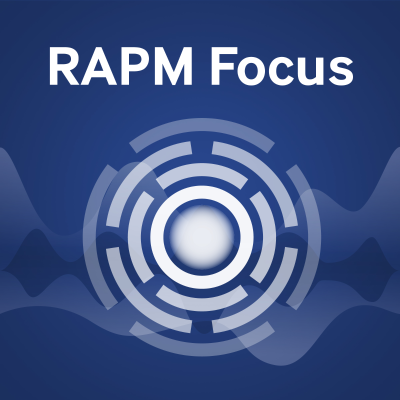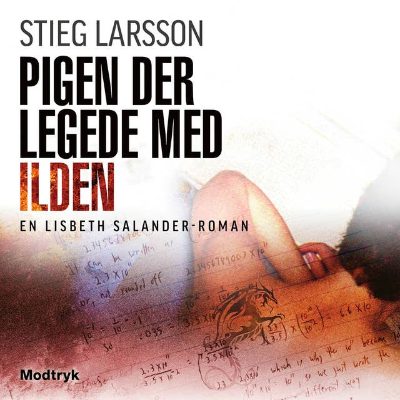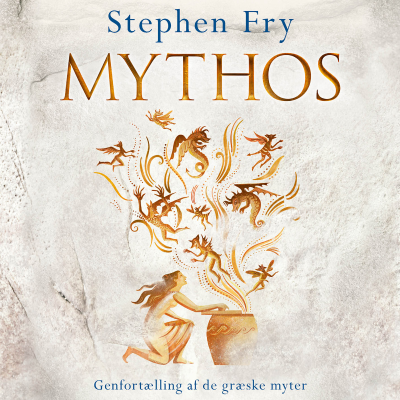
RAPM Focus
Podcast af BMJ Group
Begrænset tilbud
2 måneder kun 19 kr.
Derefter 99 kr. / månedIngen binding.

Mere end 1 million lyttere
Du vil elske Podimo, og du er ikke alene
Bedømt til 4,7 stjerner i App Store
Læs mere RAPM Focus
RAPM Focus is devoted to exploring the provocative and impactful aspects of the research published in Regional Anesthesia & Pain Medicine (RAPM) - rapm.bmj.com. Authors are joined by Editor-in-Chief, Dr. Brian Sites, and other members of the RAPM Editorial Board to discuss and debate the findings that matter most for clinicians, patients, and policy makers. Topical coverage includes all aspects of acute, perioperative, transitional, and chronic pain medicine. At RAPM, we believe well-done pain medicine improves health and well-being. Thanks for joining us. @RAPM_Online Podcast and music produced by Dan Langa.
Alle episoder
44 episoderIn the era of fast-tracked surgery and same-day discharge, anesthesiologists are looking for strategies to optimize recovery without compromising safety or pain control. A long-standing debate centers around whether low-dose bupivacaine or mepivacaine is the better spinal agent to promote early ambulation after total knee arthroplasty. In this episode of RAPM Focus, RAPM Editor-in-Chief, Brian Sites, MD, explores this debate with Clinton Pillow, MD, following the May 2025 publication of “Mepivacaine versus bupivacaine spinal anesthesia for return of motor function following total knee arthroplasty: a randomized controlled trial [https://rapm.bmj.com/content/early/2025/05/01/rapm-2024-106342].” This episode explores a topic faced by every anesthesiologist that manages joint replacements, especially total knee arthroplasty, has grappled with—what is the ideal spinal anesthetic when time is money and same-day discharge is the goal? Dr. Pillow is an assistant professor in the department of anesthesiology and perioperative medicine at the Medical University of South Carolina. *The purpose of this podcast is to educate and to inform. The content of this podcast does not constitute medical advice, and it is not intended to function as a substitute for a healthcare practitioner’s judgement, patient care, or treatment. The views expressed by contributors are those of the speakers. BMJ does not endorse any views or recommendations discussed or expressed on this podcast. Listeners should also be aware that professionals in the field may have different opinions. By listening to this podcast, listeners agree not to use its content as the basis for their own medical treatment or for the medical treatment of others. Podcast and music produced by Dan Langa. Find us on X @RAPMOnline, LinkedIn @Regional Anesthesia & Pain Medicine, Facebook @Regional Anesthesia & Pain Medicine, and Instagram @RAPM_Online.
In this episode of RAPM Focus, Editor-in-Chief Brian Sites, MD, discusses the use of buprenorphine for acute pain management with Thomas Hickey, MD, MS, following the February 2025 publication of “Buprenorphine versus full agonist opioids for acute postoperative pain management: a systematic review and meta-analysis of randomized controlled trials [https://rapm.bmj.com/content/early/2025/01/01/rapm-2024-106014].” Dr. Hickey is full-time staff at the West Haven VA where he is medical director of preoperative evaluation and the PACU, and site director for the anesthesiology residency. Within the VA, he is chairman of the VA New England Healthcare System committee on preoperative evaluation and ERAS, co-chair of the VA’s national pain/opioid consortium for research workgroup on perioperative management of medications for opioid use disorder, and a member of the National Anesthesia Program Acute Pain Management Committee. He is board certified in both anesthesiology and addiction medicine. His research interests focus on the overlap between addiction medicine and acute pain management, particularly on the use of buprenorphine for acute pain management. He and his wife are kept busy by their three kids and all their activities. *The purpose of this podcast is to educate and to inform. The content of this podcast does not constitute medical advice, and it is not intended to function as a substitute for a healthcare practitioner’s judgement, patient care, or treatment. The views expressed by contributors are those of the speakers. BMJ does not endorse any views or recommendations discussed or expressed on this podcast. Listeners should also be aware that professionals in the field may have different opinions. By listening to this podcast, listeners agree not to use its content as the basis for their own medical treatment or for the medical treatment of others. Podcast and music produced by Dan Langa. Find us on X @RAPMOnline, LinkedIn @Regional Anesthesia & Pain Medicine, Facebook @Regional Anesthesia & Pain Medicine, and Instagram @RAPM_Online.
In this episode of RAPM Focus, Editor-in-Chief Brian Sites, MD, speaks with RAPM Editor Ryan D’Souza, MD, and Nasir Hussain, MD, following the October 2024 publication of “Hidden Influence? Unmasking Conflicts of Interest from Randomized Clinical Trials on Spinal Cord Stimulation for Chronic Pain. [https://rapm.bmj.com/content/early/2024/10/07/rapm-2024-105903]” Let’s set the stage first. Spinal cord stimulation, or SCS, is a therapy that involves implanting a device that sends electrical signals to the spinal cord, aiming to disrupt pain signals before they reach the brain. It’s a rapidly evolving field with a lot of promise, but it also attracts substantial investment from medical device companies. Now, when we talk about conflicts of interest, or COIs, we’re referring to situations where a researcher’s personal interests, particularly financial ones, have the potential to cloud their professional judgment and influence the outcomes of their research. Think of it this way: if a researcher is financially tied to a company that makes a specific SCS device, might they be more inclined to see their research results in a favorable light? That’s the concern. Dr. Ryan D’Souza is an associate professor and pain medicine physician at Mayo Clinic. He is the Director of Neuromodulation, and Director of the Inpatient Pain Service. He serves on the Board of Directors of the North American Neuromodulation Society and also serves in leadership roles for ASRA Pain Medicine. Dr. D’Souza has authored over 150 peer-reviewed publications and serves on several editorial boards. Dr. Nasir Hussain is a pain medicine physician and anesthesiologist at the Ohio State University. He is an assistant professor, associate program director for the anesthesiology residency, and assistant program director of the chronic pain fellowship. Dr. Hussain has authored over 110 peer-reviewed publications in leading journals in the field, and has presented his work nationally at several conferences. *The purpose of this podcast is to educate and to inform. The content of this podcast does not constitute medical advice, and it is not intended to function as a substitute for a healthcare practitioner’s judgement, patient care, or treatment. The views expressed by contributors are those of the speakers. BMJ does not endorse any views or recommendations discussed or expressed on this podcast. Listeners should also be aware that professionals in the field may have different opinions. By listening to this podcast, listeners agree not to use its content as the basis for their own medical treatment or for the medical treatment of others. Podcast and music produced by Dan Langa. Find us on X @RAPMOnline, LinkedIn @Regional Anesthesia & Pain Medicine, Facebook @Regional Anesthesia & Pain Medicine, and Instagram @RAPM_Online.
In this episode of RAPM Focus, Alopi Patel, MD, speaks with K. Elliott Higgins III, MD, and Courtney Burns, MD, about their powerful pain palette essay, “Beyond the block: a canvas for well-being and conversation in anesthesiology and pain medicine [https://rapm.bmj.com/content/early/2025/04/23/rapm-2025-106588].” This essay accompanies Healing Emotional Wounds—a community-engaged art piece by medical and scientific illustrator Morgan Granzow. Dr. Higgins is the director of health and well-being for UCLA’s department of anesthesiology and perioperative medicine, a physician health officer for UCLA Health, and a practicing anesthesiologist with subspecialty expertise in regional anesthesia and acute pain medicine. His research focuses on measuring and understanding health care professional well-being through a systems lens. As founding leader of the Well-Being Influencers Survey for Healthcare (WISH) research consortium, he led the development of WISH, a validated tool designed to assess perceptions of organizational conditions that shape well-being rather than individual states like burnout. He also co-chairs the American Society of Anesthesiologists’ well-being research working group and serves as both a member and change maker coach for the National Academy of Medicine’s Action Collaborative on Clinician Well-Being and Resilience. Dr. Burns is an anesthesiology resident physician at Vanderbilt University Medical Center and member of the BH Robbins Scholars Physician-Scientist Development Program. Her research interests include clinician well-being among the anesthesiology workforce, psychological sequelae of adverse clinical events, and the association of clinician occupational well-being challenges with health care quality and patient outcomes. She is experienced in the medical humanities and has leveraged both visual art and narrative medicine in promoting well-being among students and clinicians. She also serves as a member of the American Society of Anesthesiologists’ Committee on Physician Well-Being and the Society for Education in Anesthesia’s Committee on Well-Being. Inviting reflection and dialogue within the RAPM community and beyond, this artwork isn’t just visual—it’s a conversation starter. By incorporating language that emerged from guided reflection, it aims to create safer, more compassionate clinical environments. Whether displayed in break rooms, pain clinics, or perioperative spaces, it offers clinicians a moment to pause, see themselves in others’ words, and feel less alone. This discussion explores how this project seeks to destigmatize emotional struggles in medicine, promote well-being, and serve as a catalyst for further research—whether through focus groups, interviews, or broader institutional efforts. Most importantly, this piece reminds us that healing isn’t just for our patients—it’s for us, too. View more of Morgan Granzow’s medical and scientific illustrations here [https://morgangranzow.com/].
In this episode of RAPM Focus, executive editor Steven Cohen, MD, discusses the September 2024 publication of “Current state of the pain medicine match: perspective and an eye to the future [Current%20state%20of%20the%20pain%20medicine%20match%3A%20perspective%20and%20an%20eye%20to%20the%20future],” with Meredith Barad, MD, Anuj Aggarwal, MD, and Lynn Kohan, MD. This letter explores the rationale behind reassessing the NRMP’s utility for pain medicine, examining historical and current trends, and considering the implications of withdrawing from the match. Despite a recent decline in applicants and an increase in unfilled positions, the APPD advocates for continued participation in the match. The match ensures equitable and stable recruitment, preventing the chaotic pre-match environment of competitive, early offers. Data from similar specialties highlight the pitfalls of non-match systems, such as increased applicant pressure and reduced program visibility. The APPD supports maintaining the NRMP match while implementing reforms like preference signaling to address evolving challenges. The APPD aims to preserve the match’s benefits and ensure a stable future for pain medicine fellowship recruitment. Dr. Barad is a clinical associate professor in anesthesiology (pain) and neurology at Stanford. She is the co-director of the Stanford Facial Pain Program and focuses on headache and facial pain. She completed her undergraduate work at the University of Texas at Austin and graduated from Stanford University Medical School in 2003. After her internship at Santa Clara Valley Medical Center in San Jose, CA, she went on to a neurology residency and pain fellowship at Stanford. She is board certified in neurology, headache, and pain. She is the associate division chief of education and program director for the pain fellowship. She is the current president of the American Pain Program Directors. She serves as the chair of the headache and facial pain special interest group for the American Academy of Pain Medicine and is on the editorial board of Pain Medicine. Dr. Aggarwal is a clinical assistant professor of anesthesiology and the associate program director of the pain medicine fellowship at Stanford University, where he specializes in headache and orofacial pain. In addition to his work in pain medicine, he helps lead the teaching of medical students serving as director of pharmacology and as associate director for the Science of Medicine. Dr. Kohan is a professor of anesthesiology and pain medicine at the University of Virginia. She is the division chief and the chronic pain program director. She serves on the board of directors for national pain societies including ASRA Pain Medicine. *The purpose of this podcast is to educate and to inform. The content of this podcast does not constitute medical advice, and it is not intended to function as a substitute for a healthcare practitioner’s judgement, patient care, or treatment. The views expressed by contributors are those of the speakers. BMJ does not endorse any views or recommendations discussed or expressed on this podcast. Listeners should also be aware that professionals in the field may have different opinions. By listening to this podcast, listeners agree not to use its content as the basis for their own medical treatment or for the medical treatment of others. Podcast and music produced by Dan Langa. Find us on X @RAPMOnline, LinkedIn @Regional Anesthesia & Pain Medicine, Facebook @Regional Anesthesia & Pain Medicine, and Instagram @RAPM_Online.

Bedømt til 4,7 stjerner i App Store
Begrænset tilbud
2 måneder kun 19 kr.
Derefter 99 kr. / månedIngen binding.
Eksklusive podcasts
Uden reklamer
Gratis podcasts
Lydbøger
20 timer / måned

































